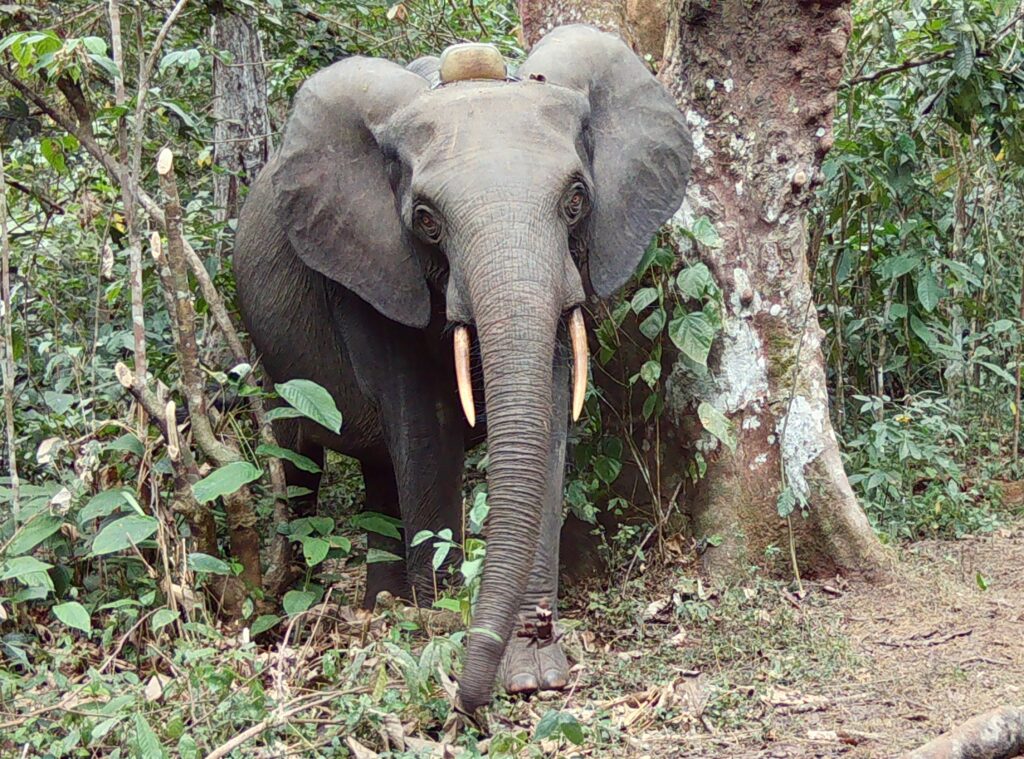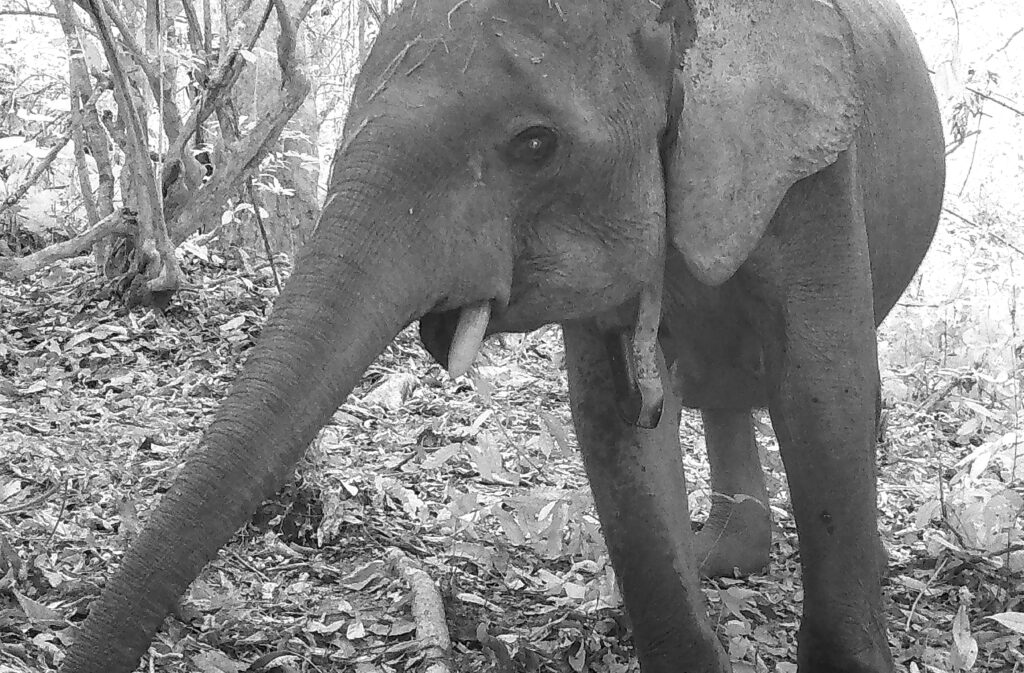We study the behavioral strategies implemented by forest elephants in the face of human activities, in particular poaching. Our work aims to understand how elephants adjust their behaviors in response to the threats they encounter.
This research is central to effectively guiding conservation actions and anti-poaching efforts. By analyzing elephants’ reactions to dangers, we can identify the behavioral adjustments they make to minimize their risk of mortality.
Identifying behavioral strategies is a first step towards interpreting elephant behavior to inform the fight against poaching and better guide conservation actions.
The National Agency of National Parks (ANPN) of Gabon has been running a telemetry program on forest elephants since 2015. Thanks to the data transmitted by the equipped elephants’ GPS collars, we can closely monitor their movements.

Through this study, we hope not only to improve our knowledge of forest elephant survival strategies, but also to develop more targeted and effective conservation measures. By identifying areas where elephants are most vulnerable, we can encourage protection and anti-poaching response efforts where they are most needed.
Ultimately, this project aims to contribute to the conservation of forest elephants in Gabon by providing solid scientific data with the aim of guiding conservation policies and anti-poaching strategies.

